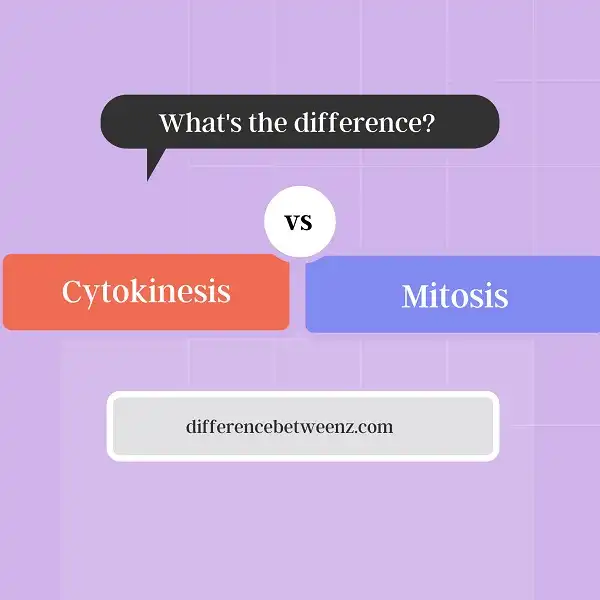Cell division is an important process that happens in all living cells. There are two main types of cell division: mitosis and cytokinesis. In this blog post, we will discuss the difference between these two types of cell division. We will also talk about the importance of each type of cell division.
What is Cytokinesis?
Cytokinesis is the process by which a cell division is completed and two new, independent cells are formed. Cytokinesis begins during mitosis when the chromosomes have been evenly distributed between the two daughter cells. Cytokinesis involves the constriction of the cell membrane around the center of the cell, known as the cleavage furrow. This constriction ultimately leads to the formation of a new plasma membrane and two separate cells. Cytokinesis is essential for the proper division of cells and helps to ensure that each new cell has an equal number of chromosomes. without cytokinesis, DNA would become unequally distributed between the two cells, leading to genetic abnormalities. Cytokinesis thus plays an important role in maintaining the health of cells and ensuring their proper function.
What is Mitosis?
Mitosis is the process of cell division that results in the creation of two genetically identical daughter cells. This process is essential for the growth and repair of tissues throughout the body. Mitosis begins with the replication of the cell’s DNA, which is tightly coiled into chromosomes. The chromosomes then line up in the center of the cell and are pulled apart by specialized proteins, resulting in two separate nuclei. Finally, the rest of the cell’s contents are divided evenly between the two new nuclei, and the cell breaks apart into two new cells. The entire process of mitosis takes place over a period of several hours.
Difference between Cytokinesis and Mitosis
Cytokinesis and mitosis are two important cellular processes that occur during cell division. Cytokinesis is the division of the cytoplasm of a cell, while mitosis is the division of the nucleus and DNA. Both processes are critical for the growth and development of organisms, but they play different roles and occur at different stages in the division process. Cytokinesis typically occurs near the end of cell division, after mitosis has already taken place. During cytokinesis, new cells begin to form from existing cells, leading to a net increase in cell number. Conversely, mitosis takes place earlier in the division process, occurring before nuclei and chromosomes separate into individual cells. Due to these differences in function and timing, it is clear that cytokinesis and mitosis are two distinct parts of the cell cycle that have important roles in sustaining life.
Conclusion
Cytokinesis and mitosis are both processes that result in cell division, but they occur in different ways. Mitosis is a process of nuclear division, while cytokinesis is the division of the cytoplasm. Understanding the difference between these two processes can help you better understand how cells divide and grow.


